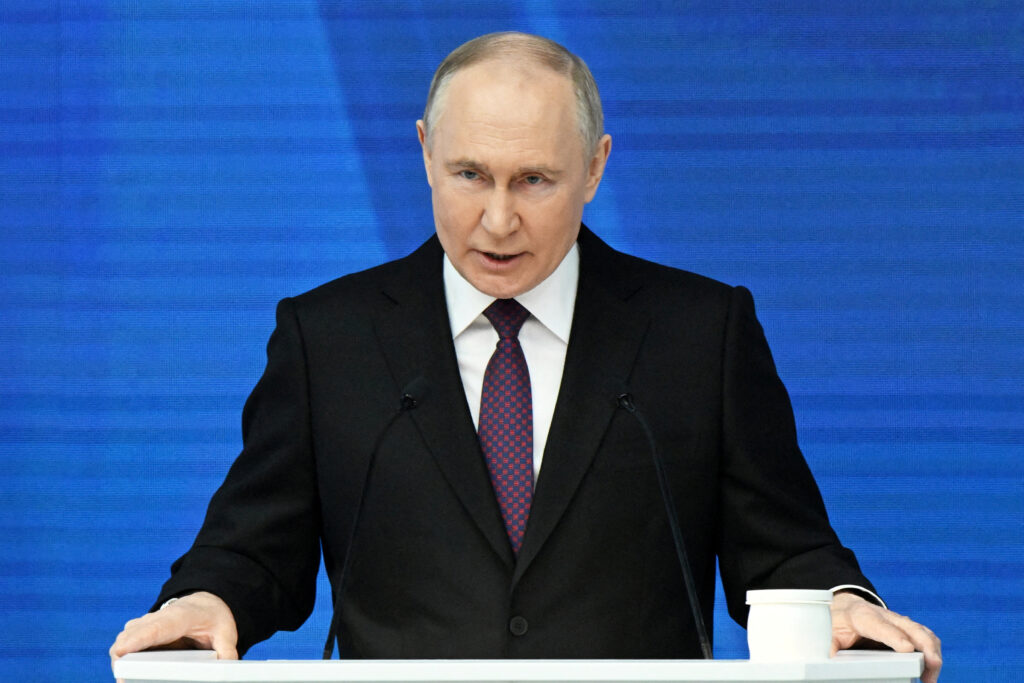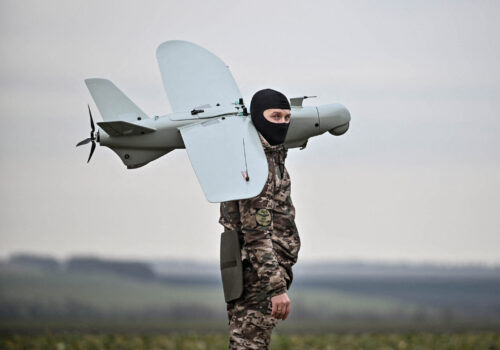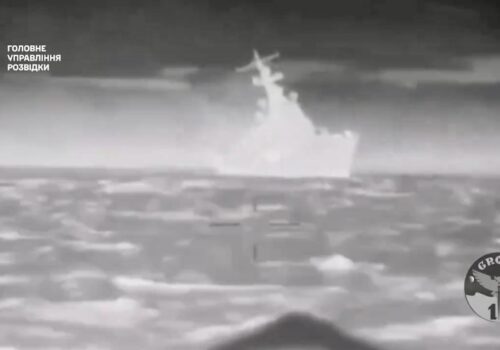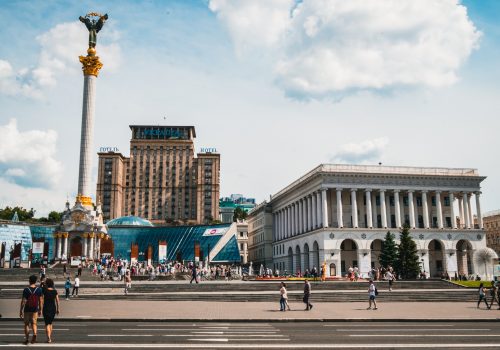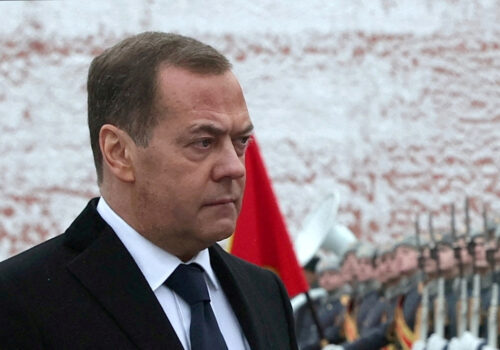
Putin is on an historic mission and will not stop until he is finally defeated
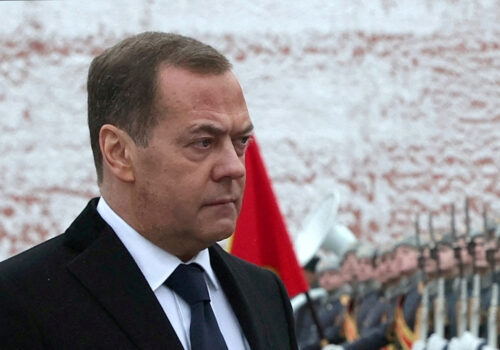
There was no escaping the mounting sense of gloom in late February as the world marked the second anniversary of Russia’s full-scale Ukraine invasion. While a chorus of international leaders voiced their determination to continue standing with Ukraine, it is now evident that Russia holds the upper hand as the conflict evolves into a grinding war of attrition. Indeed, with the future of US military aid in doubt, the mood among Ukraine’s partners is visibly darkening as thoughts turn to the disastrous consequences of a potential Russian victory.
In recent weeks, more and more Western leaders have begun publicly warning that their countries may soon become targets of Russian aggression. The latest leader to sound the alarm was French President Emmanuel Macron, who stated on February 26 that Russia could attack NATO member states “in the next few years.” Macron also sparked a heated debate by refusing to rule out sending Western troops to Ukraine.
Not everyone believes a victorious Putin would inevitably go further. Many remain skeptical and claim the Russian dictator is only interested in Ukraine. Others point to the Russian army’s well-documented difficulties during the current invasion as evidence that any Russian attack on the NATO alliance would amount to military suicide. These arguments reflect a fundamental failure among many in the West to grasp the true motives behind Russia’s invasion and the nature of the threat posed by Vladimir Putin’s imperial ambitions.
When Putin first launched the full-scale invasion of Ukraine in February 2022, he initially sought to portray it as a defensive measure against “Ukrainian Nazis” and NATO expansion. However, as the conflict has unfolded, it has become increasingly apparent that the Kremlin is waging an old-fashioned colonial war of imperial expansion.
In summer 2022, Putin directly compared his invasion to the eighteenth century imperial conquests of Russian Czar Peter the Great. Months later, he proclaimed the annexation of four Ukrainian provinces while declaring them to be “historically Russian lands.” He has since asserted that “no Ukraine ever existed in the history of mankind,” and has issued orders for all traces of Ukrainian national identity to eradicated from areas of Ukraine under Kremlin control.
Putin’s historical motivations were perhaps most immediately obvious during his recent interview with American media personality Tucker Carlson. While Carlson openly encouraged Putin to blame NATO and the US for the invasion, the Russian ruler preferred to embark on a half-hour history lecture that placed the origins of the current war firmly in the distant past. Rather than seeking to justify his invasion in terms of contemporary geopolitics, Putin chose to argue that Ukraine was historically Russian and therefore a legitimate target.
Putin’s chilling dream of reclaiming “historically Russian lands” puts a large number of countries at risk of suffering the same fate as Ukraine. The Kremlin strongman is notorious for lamenting the collapse of the Soviet Union, but his revisionist ambitions actually extend beyond the boundaries of the former USSR. On numerous occasions, Putin has expressed his belief that the Soviet Union was in fact a continuation of the Russian Empire, while the fall of the USSR was “the disintegration of historical Russia.” “What had been built up over 1000 years was largely lost,” he commented in December 2021.
Based on this twisted logic, the historical arguments used by Putin to justify the invasion of Ukraine could be equally applied to any country that was once part of the Russian Empire. This would result in a list of potential targets including Finland, Estonia, Latvia, Lithuania, Belarus, Poland, Moldova, Georgia, Armenia, Azerbaijan, and the whole of Central Asia, not to mention Alaska. Anyone tempted to dismiss the idea of Russia invading these countries should consider that just ten years ago, most Ukrainians were equally sure such things were impossible in the twenty-first century.
Nor is Putin solely motivated by his deep-seated desire to reverse Russia’s imperial decline. He also sees the invasion of Ukraine as a fight to end the era of Western dominance and establish a new multi-polar world order. After decades spent bristling at Russia’s reduced status and the perceived humiliations of the post-Soviet period, he is now attempting to frame the war in Ukraine as a battle against Pax Americana to shape the future of international relations. Putin believes victory over Ukraine would represent a decisive breakthrough that would undermine the entire post-1991 world order and reverse the verdict of the Cold War.
Stay updated
As the world watches the Russian invasion of Ukraine unfold, UkraineAlert delivers the best Atlantic Council expert insight and analysis on Ukraine twice a week directly to your inbox.
Doubters argue that the Russian army is currently in no shape to undertake any further invasions, never mind confronting the military might of NATO itself. This reasoning is superficially persuasive. After all, Putin’s army has seen its reputation as the world’s number two military take a severe battering in Ukraine. Russian commanders have lost a series of key battles and have suffered catastrophic losses in both men and equipment that have left them increasingly dependent on the brute force of primitive human wave tactics.
Despite these setbacks, it would be foolish to underestimate Russia’s military potential. In the past two years, Putin has placed the entire Russian economy on a war footing. Armaments factories are now working around the clock and are already comfortably outproducing the entire NATO alliance in terms of artillery shells and other key armaments. Russia may have lost hundreds of thousands killed and wounded in Ukraine, but the Kremlin still has vast untapped reserves of fighting age men who can be mobilized in time for the next big invasion.
Skeptics also tend to overlook the likely impact of victory in Ukraine on Russia’s military capabilities. In practical terms, the conquest of Ukraine would secure hundreds of thousands of additional conscript troops and a vast array of new weapons for the Russian army. Control over Ukraine would significantly enhance the Kremlin war machine by offering renewed access to a range of major Ukrainian enterprises that previously played key roles in the Soviet military industrial complex. It would make Russia the dominant force on global agricultural markets, handing Moscow enormous leverage that could be used to bribe allies and deter opponents.
Crucially, success in Ukraine would provide Putin with enormous additional momentum while simultaneously destabilizing and demoralizing the whole democratic world. Inside Russia, pro-war sentiment would be further strengthened and Putin’s messianic vision of a new Russian Empire would be vindicated. Internationally, Russia’s existing allies would feel free to increase their support, while the countries of the nonaligned Global South would rush to strengthen ties with the triumphant Kremlin. In such a favorable geopolitical climate, Putin would doubtless find it difficult to resist the temptation to escalate his confrontation with the West. Indeed, he would almost certainly see it as a once-in-a-lifetime opportunity to achieve his historic mission.
Eurasia Center events
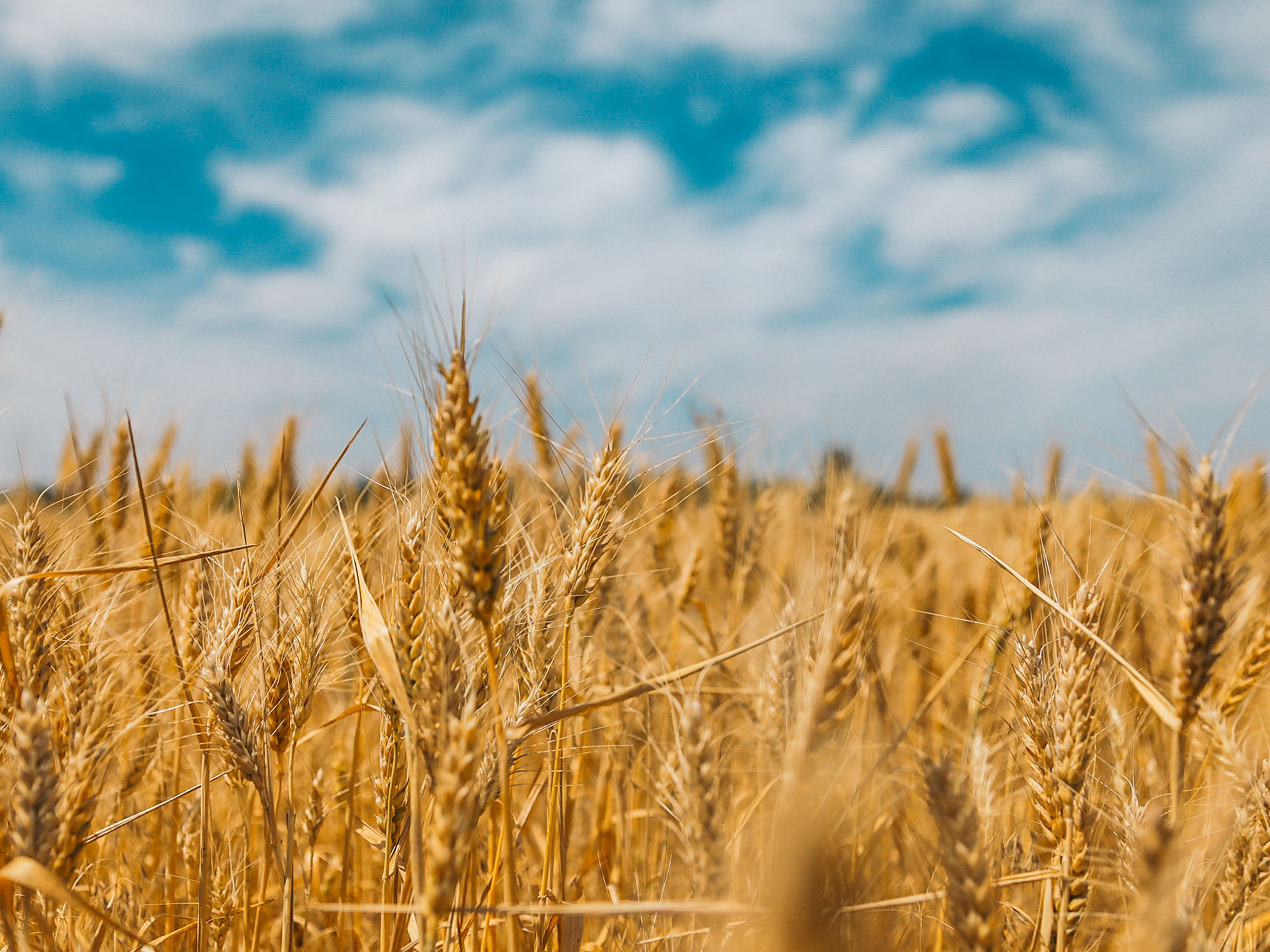
This does not mean we should expect to see Russian tanks on the streets of NATO capitals any time soon. Putin knows he can reach his goals by discrediting NATO rather than actually defeating the alliance on the battlefield. With this in mind, the Kremlin would be far more likely to opt for the kind of hybrid tactics employed during the early stages of the Ukraine invasion in 2014. Indeed, it is all too easy to imagine unidentified Russian troops operating inside NATO territory behind a veil of barely plausible deniability.
An escalation of hybrid warfare against the NATO alliance would enable Moscow to exploit the lack of resolve and fear of escalation demonstrated by Western leaders over the past two years in Ukraine. Would the current generation of US, German, or French leaders be prepared to involve their countries in a war with Russia over an ambiguous “pro-Russian” uprising in an Estonian border town? If not, the absence of a decisive response could fatally undermine NATO’s core commitment to collective defense. The alliance might formally survive such a blow, but the loss of credibility would be catastrophic. It would not be long before individual NATO member countries started forming separate security arrangements of their own and began offering concessions to the Kremlin.
Even if Putin chooses not to test NATO directly, a Russian victory in Ukraine would transform the international security environment and dramatically increase the risk of a truly global war. European countries would be forced to rapidly rearm, with defense budgets soon ballooning to levels that far surpass the current costs of supporting the Ukrainian war effort. Those who begrudge today’s spending on Ukraine would find themselves confronted with security expenditure five or ten times higher.
Putin himself has provided ample evidence that his goals extend far beyond the reconquest of Ukraine. He makes no secret of his commitment to reclaiming what he regards as historically Russian lands, and believes he is fully justified in using military force to do so. Putin’s revisionist agenda is inextricably linked to his other great passion, namely the revival of Russia’s great power status as part of a post-Western world dominated by a handful of regional behemoths. These imperial ambitions led directly to the invasion of Ukraine and make further escalations virtually inevitable unless Russia is defeated.
Ultimately, it is impossible to predict exactly what Putin will do if he wins in Ukraine. He may initially choose to pursue low-hanging geopolitical fruit by seizing small neighborhood countries like Moldova or Georgia. Alternatively, he might seek to press home his advantage against a weakened West by embarking on far bolder military gambits targeting the Baltic states or the Suwałki Gap. Of the many possible post-Ukraine scenarios for Russia, the least likely of all is the idea that an emboldened and victorious Putin would simply stop.
Peter Dickinson is editor of the Atlantic Council’s UkraineAlert service.
Further reading
The views expressed in UkraineAlert are solely those of the authors and do not necessarily reflect the views of the Atlantic Council, its staff, or its supporters.

The Eurasia Center’s mission is to enhance transatlantic cooperation in promoting stability, democratic values and prosperity in Eurasia, from Eastern Europe and Turkey in the West to the Caucasus, Russia and Central Asia in the East.
Follow us on social media
and support our work
Image: Russian President Vladimir Putin delivers his annual address to the Federal Assembly, in Moscow, Russia, February 29, 2024. Sputnik/Sergey Guneev/Kremlin via REUTERS
